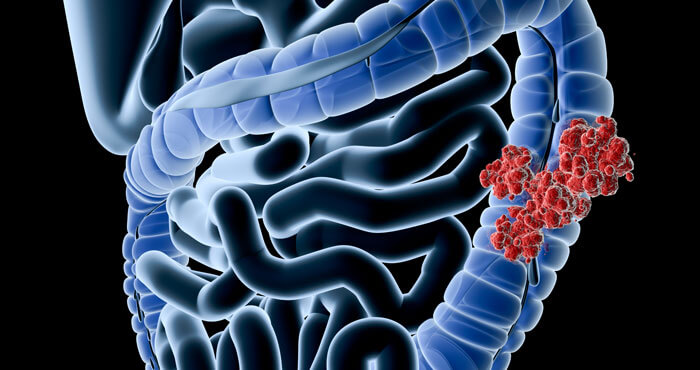Cut Your Chances of Getting Colorectal Cancer

Colorectal cancer is the second leading cancer killer in the U.S. But, if everyone aged 50 years or older had regular screening tests, at least 60 percent of the deaths from this disease could be prevented.
Colorectal cancers often begin as polyps (growths on the inside of your intestines). Most polyps stay harmless, but some can turn cancerous. Removing them early prevents the disease.
Risk factors for colorectal cancer include:
- Age. More than 90 percent of cases occur in people who are 50 years old or older.
- Polyps or inflammatory bowel disease. If you have a history of polyps or have inflammatory bowel disease, your risk of developing colorectal cancer is increased.
- Family history. Having a parent, brother, sister or child with colorectal cancer doubles your risk of getting colorectal cancer.
- Racial background. African Americans have the highest colorectal cancer rates of all racial groups in the U.S.
- Type 2 diabetes. If you have type 2 diabetes, your risk of developing colorectal cancer is increased.
Colorectal cancer doesn’t have early warning signs. As the disease progresses, you may see blood in your stool or have pain in your belly, a change in bowel habits (such as constipation or diarrhea), unexplained weight loss or fatigue.
To reduce your risk of getting colorectal cancer:
- Get screened. Screenings should start at age 50 for most people. Talk to your doctor about when you should start and which tests are right for you.
- Eat more fruits, vegetables, and whole grains. They contain antioxidants, which may play a role in cancer prevention. Eat less red and processed meats.
- Limit alcohol. If you do drink, limit the amount of alcohol you drink to one drink a day for women and two for men.
- Don’t smoke. Talk to your doctor about ways to quit.
- Exercise. Get at least 30 minutes of exercise on most days. Talk to your doctor before starting any exercise program.
- Watch your weight. Being obese or overweight increases your risk of getting colon cancer. Eat healthily and increase your physical activity to help you control your weight.
Learn more about Baptist Health Cancer Care.



